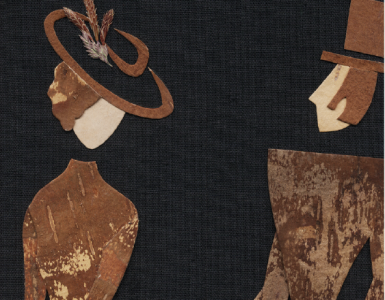by Denise Noe
First published in August/September, 2004, Volume 1, Issue 4, The Hatchet: Journal of Lizzie Borden Studies.
In a 1984 essay for Newsweek entitled “A New Whack at the Borden Case,” the author, David Gates, asked “Why the continuing fascination [with the case]?” Then he answered his own question: “Some of it may be due to the incongruity between the nastiness of the crime and the probity of the accused, a Sunday-school teacher and a member of the WCTU.” WCTU is the well-known acronym of the Woman’s Christian Temperance Union. Lizzie had another connection to the WCTU in addition to being a member in good standing—the Fall River branch of the organization rented space in the A.J. Borden Building from Andrew Borden.
Just what was and is this organization, the very membership in which would, at least in Lizzie’s day, automatically endow someone with an air of “probity”?
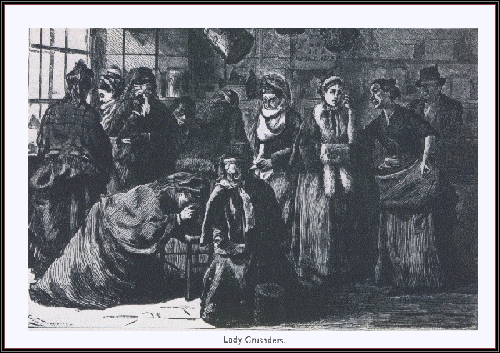 The WCTU has a long and colorful history. World Book Online states that “The WCTU developed out of the Woman’s Temperance Crusade of 1873. During this campaign, women church members went into saloons, sang hymns, prayed, and asked the saloonkeepers to stop selling liquor.” The first groups formed in Fredonia, New York, Hillsboro, Ohio, and Washington Court House, Ohio. The first crusade began on Christmas Eve as women braved the blistering cold to stand or even kneel in prayer in the snow before the doors of saloons until the owners capitulated. Says the WCTU’s website, “In three months the women had driven liquor out of 250 communities.” Inspired by their early successes, the women leading this impromptu crusade decided to form a national association to spearhead the cause of temperance, founding the National Woman’s Christian Temperance Union in 1874 in Cleveland, Ohio.
The WCTU has a long and colorful history. World Book Online states that “The WCTU developed out of the Woman’s Temperance Crusade of 1873. During this campaign, women church members went into saloons, sang hymns, prayed, and asked the saloonkeepers to stop selling liquor.” The first groups formed in Fredonia, New York, Hillsboro, Ohio, and Washington Court House, Ohio. The first crusade began on Christmas Eve as women braved the blistering cold to stand or even kneel in prayer in the snow before the doors of saloons until the owners capitulated. Says the WCTU’s website, “In three months the women had driven liquor out of 250 communities.” Inspired by their early successes, the women leading this impromptu crusade decided to form a national association to spearhead the cause of temperance, founding the National Woman’s Christian Temperance Union in 1874 in Cleveland, Ohio.
The group grew quickly because it attracted many women dismayed by the violence, behavioral problems and illnesses connected with alcohol consumption. Females may have been especially attracted to the temperance movement because they had traditionally been culturally discouraged from strong drink but often had to live with husbands, brother, sons, and fathers who overindulged in it. As the Internet Modern History Sourcebook explains, “American women throughout the 19th century were very active in public politics. They could pursue this activity most easily when it was put under the sign of ‘morality’ . . . alcohol was attacked not just because of supposed religious objections, but because excessive use of alcohol destroyed the lives of many women who faced drunken husbands.”
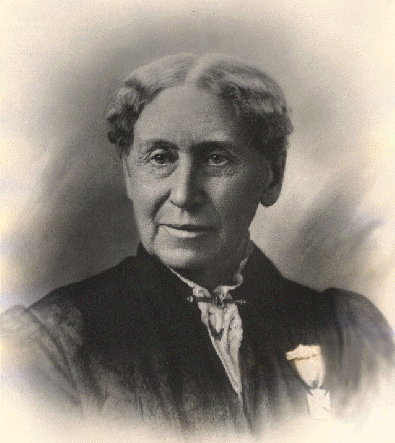 The WCTU’s first president was Annie Wittenmyer and she was a particularly distinguished choice for the organization’s leader. According to the “Time Line” of the official Woman’s Christian Temperance Union website, “During the Civil War she had been responsible for creating diet kitchens in the army hospitals which saved thousands of lives. She was also responsible for the development of a home in Iowa for orphans of soldiers and sailors.” Under her presidency, in 1877, the WCTU ruled that anyone who joined must take a pledge of total abstinence from alcohol.
The WCTU’s first president was Annie Wittenmyer and she was a particularly distinguished choice for the organization’s leader. According to the “Time Line” of the official Woman’s Christian Temperance Union website, “During the Civil War she had been responsible for creating diet kitchens in the army hospitals which saved thousands of lives. She was also responsible for the development of a home in Iowa for orphans of soldiers and sailors.” Under her presidency, in 1877, the WCTU ruled that anyone who joined must take a pledge of total abstinence from alcohol.
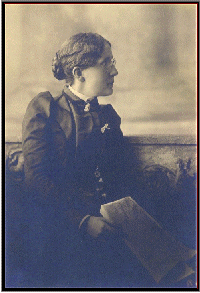 The woman who did more than any other to make the WCTU a force to be reckoned with was its second president, Frances Willard, who assumed the WCTU presidency in 1879 and served until her death in 1898. Willard was also president of the Evanston College for Ladies in Illinois, and when the college merged with Northwestern University in 1873 she became the first Dean of Women.
The woman who did more than any other to make the WCTU a force to be reckoned with was its second president, Frances Willard, who assumed the WCTU presidency in 1879 and served until her death in 1898. Willard was also president of the Evanston College for Ladies in Illinois, and when the college merged with Northwestern University in 1873 she became the first Dean of Women.
The powerful WCTU became involved in many causes besides temperance. As early as 1875, the group expressed concern about the use of tobacco. In 1884, it came out in support of kindergartens. Many of the causes championed by the WCTU were directed toward opening up broader vistas for females and, to that end, the group promoted physical education for girls, and favored women owning their own businesses.
The WCTU also championed the innocence of Lizzie Borden. According to Frank Spiering in Lizzie, the WCTU “supported her with demonstrations and gatherings in the major cities of the United States. Mrs. Susan S. Fessenden, president of the [Massachusetts] W.C.T.U., thrilled listeners at their annual meeting in Chicago as she shouted in a frenzy, ‘Is Lizzie Borden guilty? No, no, a thousand times no!” The Baltimore Sun wrote that Fessenden also visited Lizzie during her trial and spoke to her in the court during recess.
After her acquittal, enthusiastic support for Lizzie’s innocence dissipated with astonishing swiftness. Spiering comments that soon after the trial Lizzie “felt that she was being snubbed by the group of women who had once staunchly defended her – the W.C.T.U. . . .” She decided to deny them the use of the A.J. Borden Building. Spiering quotes the Fall River News as writing that Lizzie “felt that she should not put up with insults from her tenants, and accordingly the W.C.T.U. has been compelled to seek quarters elsewhere. The affair has caused considerable indignation among the eighty members of the local branch.”
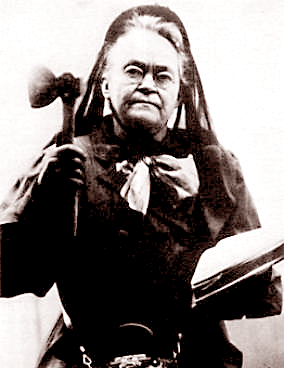
Interestingly, Lizzie is not the only WCTU member famously associated with a hatchet. During the decade 1900-1910, the flamboyant WCTU member Carrie Nation frequently led groups of outraged women into saloons where they wielded hatchets. According to The American Experience, “she was arrested some 30 times after leading her followers in the destruction of one watering hole after another with cries of ‘Smash, ladies, smash!’ Prizefighter John L. Sullivan was reported to have run and hid when Nation burst into his New York City saloon. Self-righteous and formidable, Nation mocked her opponents as ‘rum-soaked, whiskey-swilled, saturn-faced rummies.’”
It should be noted that Nation and her followers broke things and never attacked people. Furthermore, her tactics were not those of the general WCTU that championed orderly, non-violent protest.
During the middle of the very decade in which Carrie Nation proudly made her name with a hatchet, the equally famous former WCTU member who had been acquitted of two murders believed to have been perpetrated with a similar weapon, had possibly taken up liquor. The woman, who now called herself Lizbeth Borden, had become friends with the then-famous actress Nance O’Neil. Spiering wrote, “reports of raucous behavior and alcoholic improprieties reached the establishment of Fall River and were discussed by members of the W.C.T.U., of which Lizzie had once been a member.”
The power of the WCTU appeared to reach its zenith with the 1919 passage of the Eighteenth Amendment to the US Constitution. Known as Prohibition, the amendment made it illegal to manufacture, import, export or sell alcoholic beverages anywhere in the United States.
Another triumph soon followed with the 1920 passage of the Nineteenth Amendment giving women the right to vote, a right the WCTU had campaigned for with much the same fervor it brought to its crusade against liquor.
Prohibition lasted until 1933, when the Twenty-First Amendment repealed the Eighteenth Amendment. It is the sole instance in American history in which one constitutional amendment was passed to void another. A disappointed WCTU President, Ella Boole, commented, “Repeal will not change the nature of alcohol.”
The failure of Prohibition inevitably led to a decline in the WCTU’s fortunes but the organization did not die out. Although it is associated with the late nineteenth and early twentieth centuries in much of the popular mind, the WCTU is still very much alive and active today. It bills itself as the “oldest continuing non-sectarian women’s organization in the world.”
For almost one hundred and fifty years, the WCTU has been active in a wide range of causes. It has worked in support of the eight-hour workday, the Parent Teachers Association (PTA), federal aid to education, the Pure Food and Drug Act, and the right of laborers to form unions. This women’s organization has had a special interest in fair treatment for the “fair sex,” and, to that end, helped set up shelters for abused women and children, supported equal pay for equal work, and promoted the employment of female police officers.
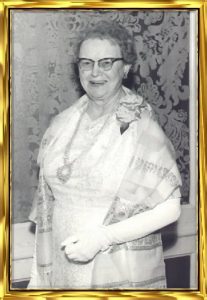 In 1959, the WCTU elected Ruth Tooze as its president. Aware of the irony of her name, she became known for the wry comment, “My name is Tooze, it rhymes with booze, and I’m agin it.”
In 1959, the WCTU elected Ruth Tooze as its president. Aware of the irony of her name, she became known for the wry comment, “My name is Tooze, it rhymes with booze, and I’m agin it.”
Based in Evanston, Illinois, the WCTU has branches in every state in the United States and in many other countries. It still has the rule that its members must take a pledge of total abstinence from alcoholic beverages. It also crusades against the use of tobacco and mind and mood altering drugs like marijuana. The World Book Online states, “One of the WCTU’s chief aims is to educate people, especially youths, on the harmful effects of alcohol, other narcotic drugs, and tobacco. The WCTU has helped enact state laws requiring public schools to teach about such effects.”
Appropriately famed for its work on behalf of greater rights and expanded opportunities for women, in some respects the WCTU stands apart from much of the modern feminist movement. The early suffrage leaders like Susan B. Anthony, Elizabeth Cady Stanton, and the notorious Free Love advocate Victoria Woodhull, were stoutly against abortion. Today’s WCTU website urges people to oppose both experimentation on human embryos and cloning. The same page supports a proposed act that “would require all family planning clinics that receive Title X money to provide detailed information about adoption and adoption centers” because it “would educate women on their choices plus benefit couples who want to adopt because more babies would be available.” The organization also advocates the adoption of a constitutional amendment stating that marriage must be “between one man and one woman.”
The WCTU runs Signal Press that publishes a variety of materials relating to the dangers of alcohol, tobacco, and the illegal mind-altering drugs as well as social issues. The Union Signal is the official organ of the WCTU, a quarterly journal dedicated to the cause of temperance.
The primary focus of the WCTU remains what it has been from its inception: opposition to alcoholic beverages. In a WCTU website article entitled “Alcohol #1 Drug Problem,” it notes that “About 350 die daily from alcohol-related problems while about 15 to 30 die daily from the health effects of illegal drug use.” It further notes that “Alcoholism is the third leading cause of death in this country after heart disease and cancer,” and that “In 1999, 30 percent of traffic crash deaths and about 50 percent of crash injuries were alcohol-related.” The piece also says that, “50 percent of homicides and 25-33 percent of suicides involve alcohol. For both non-fatal unintentional injuries and non-fatal intentional injuries including assault, spouse abuse, child molestation, sexual assault, rape, and attempted suicide, 25 to 50 percent of the incidents are alcohol related.” The article concludes that, “After weighing the facts, total abstinence is the wise choice.”
The WCTU has grown and changed in its more than a century of existence but has remained true to its roots as an anti-alcohol organization. Many interesting women have been members in the past and will undoubtedly be members in the future but perhaps none will ever be more tantalizingly elusive than Lizzie Borden, a woman of probity accused of a brutal double parricide.
Works Cited:
“Carrie Nation.” People and Events, The American Experience: America 1900, 19 July 2004.<http://www.pbs.org/wgbh/amex/1900/peopleevents/pande4.html>.
Gates, David. “A New Whack at the Borden Case.” Newsweek (4 June 1984): 12.
“Modern History Sourcebook: Woman’s Christian Temperance Union: Growth of Membership and of Local, Auxiliary Unions, 1879-1921.” Internet Modern History Sourcebook, 19 July 2004.<http://www.fordham.edu./halsall/mod/WCTU-growth.html>.
Spiering, Frank. Lizzie: The Story of Lizzie Borden. NY: Random House, 1984.
“Woman’s Christian Temperance Union (WCTU).” World Book Online Reference Center. 2004. World Book, Inc. 19 July 2004.<http://www.worldbookonline.com/wb/Article?id=ar608360>.



